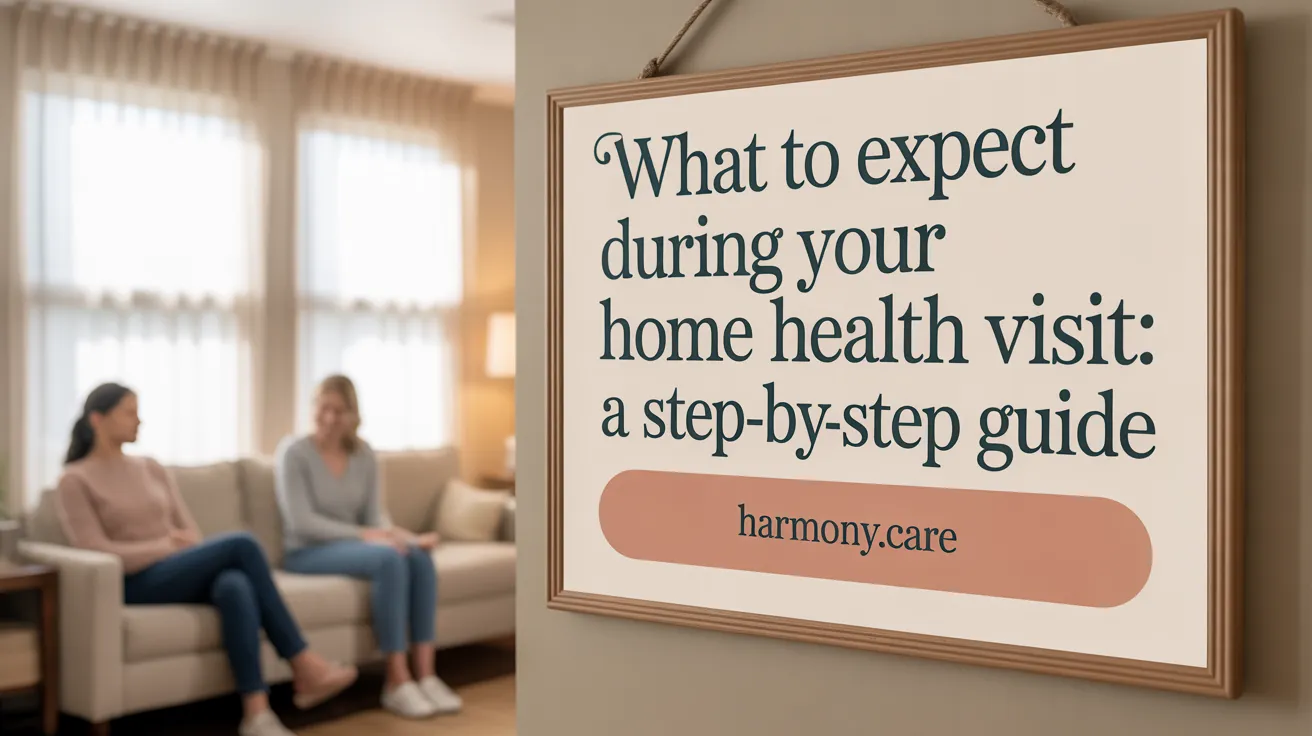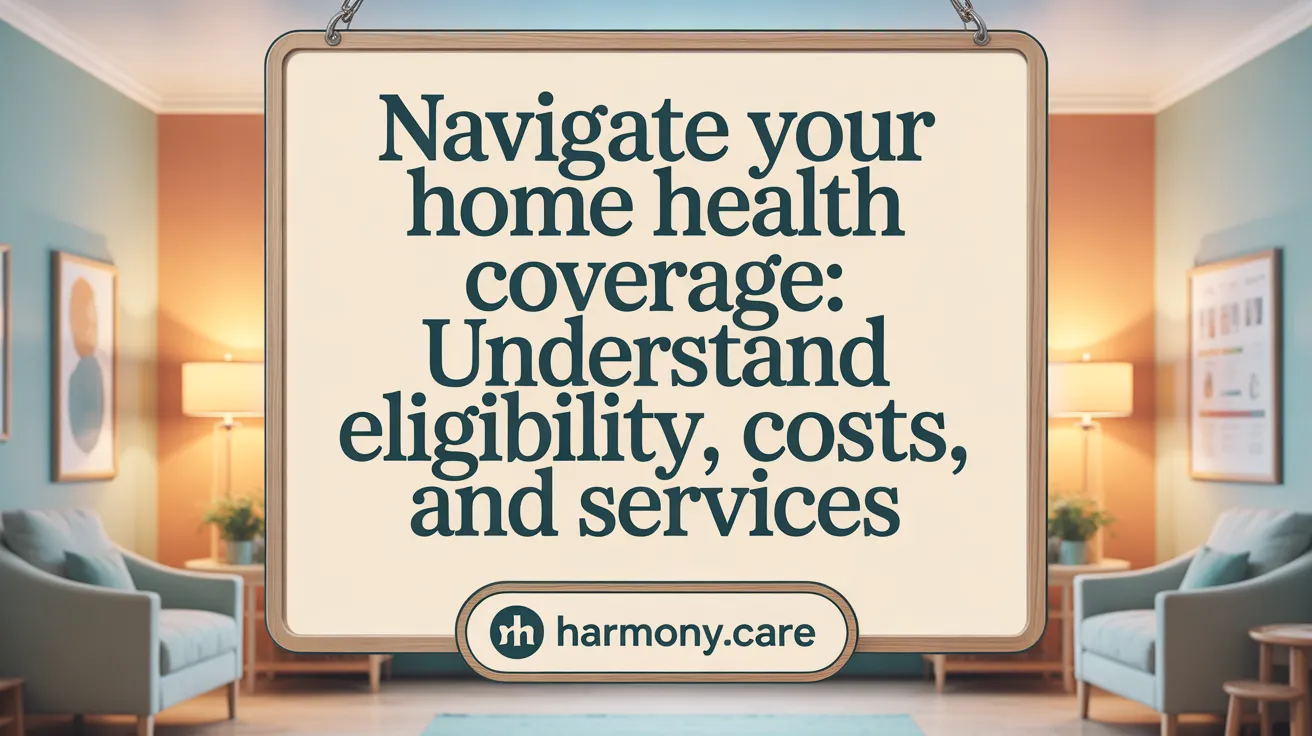Understanding Home Health Visits
Home health care offers a valuable alternative to hospital stays by providing medical support and therapy services directly in the comfort of your own home. Whether recovering from an illness, surgery, or managing a chronic condition, knowing what to expect from home health visits can greatly ease the transition and improve collaboration with your care team. This article provides a comprehensive overview of the home health visit process, the roles of healthcare professionals involved, how to prepare effectively, and the benefits you can gain from receiving care at home.
Preparing for Your Home Health Visit: What You Need to Know

How can a patient prepare effectively for a home health visit?
To ensure your home health visit goes smoothly and effectively, adequate preparation is essential. Start by reviewing your care plan, medications, and discharge instructions from your healthcare provider. This helps you understand what the visit will focus on and any specific tasks or questions you want to address.
Create a list of responsibilities or concerns—such as wound care, medication management, or mobility issues—that you want the home care team to know about. Having this list on hand will make the visit more focused and productive.
Gather all relevant medical documents, including recent test results, your medication list, and any special equipment or supplies you use regularly. Sharing this information with your care providers helps them tailor their services to your needs.
Next, prepare your home environment. Clear pathways to avoid tripping hazards, especially near entrances and bathrooms. Ensure your medication and medical supplies are organized and accessible.
It's also helpful to make a list of emergency contacts, including your primary care doctor, specialists, and family members. This ensures quick communication if needed.
Finally, confirm your appointment in advance. Ensure you or a caregiver are available during the scheduled time, and your home is ready for the visit. Setting up a quiet, well-lit space for the assessment will make communication easier and help the provider perform their evaluation effectively.
Preparing thoroughly not only helps the visit go smoothly but also enhances the quality of care you receive and ensures all your concerns are addressed.
What Happens During a Typical Home Health Visit?

Initial assessment and review of medical history
When you begin home health care, a healthcare professional—often a skilled nurse or therapist—conducts an initial assessment. This visit involves reviewing your complete medical history, current medications, daily routines, and health goals.
The assessment also includes evaluating your home environment and safety concerns, such as tripping hazards or bathroom safety issues. Gathering this information helps the care team develop a personalized treatment plan.
Monitoring vital signs and wound care
During the visit, vital signs like blood pressure, heart rate, temperature, respiratory rate, and oxygen levels are checked. If you have wounds, these are examined and dressed as needed.
Monitoring your health closely allows the team to detect any changes early and adjust the care plan accordingly.
Medication administration and education
Your provider may help administer medications or injections, ensuring they are taken correctly. Education is a major part of the visit, covering medication management, potential side effects, and proper use of medical equipment.
This instruction empowers you and your caregivers to follow your care plan confidently.
Teaching equipment use and safety protocols
Home health visits often involve demonstrating how to use medical devices such as blood glucose meters, oxygen tanks, or wound care supplies.
Safety instructions are also provided, focusing on fall prevention, safe medication storage, and emergency procedures.
Typical duration and visit frequency
Most home health visits last around one hour, though the length can vary based on individual needs and the scope of services.
At the start of care, visits tend to be more frequent—several times a week—and may decrease as your condition improves.
These visits are scheduled in coordination with your healthcare provider to support recovery, manage chronic illnesses, or facilitate post-hospital care.
What to Expect for Future Visits
As healthcare models evolve, the focus of home visits shifts toward preventive care—aiming to avoid hospital readmissions and manage health proactively.
This may include additional assessments like fall risk evaluations or chronic disease management strategies.
By staying engaged with your care team, following safety protocols, and attending scheduled visits, you’re positioned to recover more effectively and maintain your independence at home.
Roles of Healthcare Professionals in Home Health Care

What roles do healthcare professionals play during a home health visit?
During a home health visit, professionals work together to provide comprehensive care tailored to each patient's needs. Nurses are responsible for vital signs monitoring, administering medications, wound care, and education about health management. Physical, occupational, and speech therapists focus on improving mobility, daily functioning, and communication skills through targeted exercises.
Home health aides assist with daily personal activities such as bathing, dressing, and mobility help, ensuring patient comfort and safety inside the home. Social workers evaluate emotional well-being, provide counseling, and connect patients and families with community resources.
Coordination is vital in this setting. The team consults with the patient's physician to adjust treatment plans and ensure continuity of care. They also assess the home environment for hazards, recommending adjustments to prevent falls or injuries, and support both patient recovery and chronic disease management.
This collaborative approach aims to improve health outcomes, reduce hospital readmissions, and help patients maintain independence in their own homes.
Understanding Coverage, Eligibility, and Costs in Home Health Services
 Home health care is an essential service for individuals recovering from illness, injury, or managing chronic conditions. It involves medical support from skilled professionals such as nurses, physical therapists, and social workers, delivered right in the comfort of the patient's home.
Home health care is an essential service for individuals recovering from illness, injury, or managing chronic conditions. It involves medical support from skilled professionals such as nurses, physical therapists, and social workers, delivered right in the comfort of the patient's home.
What factors influence eligibility, coverage, and costs related to home health services?
Eligibility for home health care primarily depends on the patient's ability to meet certain criteria. One of the main requirements is that the individual be considered 'homebound,' meaning leaving the home would be difficult, discouraged, or a major effort due to health condition. Patients must also have a recent face-to-face assessment performed by a healthcare provider, which confirms the need for skilled nursing, therapy, or other medically necessary services.
Coverage largely hinges on these assessments and the services outlined in the patient's care plan. Under programs like Medicare, services are covered if they are deemed reasonable and necessary, provided by Medicare-certified agencies, and follow specific guidelines.
Costs for patients are influenced by individual insurance plans. Medicare beneficiaries, for example, often find that most services are fully covered, although some costs like deductibles or copayments may apply. Private insurance and Medicare Advantage plans might include different co-payments, service limits, or out-of-pocket expenses.
Certain services are not covered by home health programs. These include 24-hour care, homemaker services unrelated to medical needs, and personal care that is not part of a skilled care plan. Non-medical needs like meal delivery or full-time personal assistance are generally excluded from coverage.
In conclusion, eligibility, coverage, and costs are shaped by the patient's health condition, adherence to regulatory criteria, and specific insurance policies. Understanding these factors helps patients and caregivers navigate the complex world of home health care and access the services they need.
Benefits and Ongoing Care: What to Expect Before, During, and After Your Visit

What should a patient expect before, during, and after a home health visit?
Before the visit, patients should prepare by gathering recent medical records, medication lists, and creating a comfortable environment at home. Reviewing questions or concerns related to their health can also help maximize the visit.
On the day of the appointment, a healthcare professional such as a nurse or therapist will call in advance to confirm the time and address any last-minute questions.
During the visit, the provider will arrive at the scheduled time, conduct a comprehensive assessment, review medications, and explain the care plan. They might demonstrate essential techniques or equipment use, review safety precautions, and provide skilled nursing or therapy services.
After completion, patients should follow any given instructions, monitor their health, and communicate concerns promptly. Follow-up visits are planned to support recovery, and the care team remains available 24/7 for emergency support.
What are the benefits of receiving home health care?
Home health care offers numerous advantages, including personalized support in a familiar setting, which can accelerate healing and improve comfort. It promotes independence, helping patients perform daily tasks, and addresses emotional wellbeing.
It reduces the likelihood of hospital readmissions by managing health conditions effectively at home, which also lowers the risk of complications and infections. Cost savings are another benefit, as it helps avoid unnecessary hospital stays and long-term care costs.
Advanced monitoring tools and coordinated services ensure safety and communication, leading to faster and safer recovery processes. Patients receive tailored care that accounts for their specific health needs, fostering overall better health outcomes.
How can patients learn about the home health care system and what to expect during home visits?
Patients can start by consulting their healthcare providers, who will explain the specific care plan and formalize the process through trusted agencies. Reviewing information from Medicare-certified agencies and reputable health websites can also provide clarity.
Preparation involves understanding what services will be provided, such as nursing, therapy, or social support. Patients should be ready with questions about their treatments, medications, and equipment to feel more confident.
During visits, healthcare professionals assess needs, provide hands-on care, and teach patients how to manage their health. Clear communication and active engagement during this process help set expectations, foster trust, and promote effective recovery.
How to enhance your home health experience
Preparing a list of responsibilities, schedules, and emergency contacts can facilitate smoother visits.
Treat home visits like doctor’s appointments by being punctual and prepared.
Staying informed about available services and participating actively in your care can improve outcomes.
Knowing that support is available around the clock helps reduce anxiety and encourages confidence in managing health at home.
Empowering Patients Through Home Health Care
Home health visits offer a tailored and compassionate approach to medical care, combining professional expertise with the comfort of familiar surroundings. By understanding the preparation required, what to anticipate during visits, the roles of varied healthcare professionals, and the intricacies of coverage and cost, patients can engage more confidently in their recovery journey. The benefits of home health care extend beyond medical treatment, supporting independence, emotional well-being, and reduced hospital readmissions. Staying informed and involved with your home health team paves the way for successful outcomes and improved quality of life at home.
References
- What to Expect at Your First Home Care Visit - VNS Health
- What to Expect From Home Health Care - Banner Health
- Home Health Care: What to Expect | Kaiser Permanente
- What to Expect: Beginning Of Home Health Care Services
- Home Health Services Coverage - Medicare
- What to Expect During Your First At-Home Primary Care Visit
- 12. Home Visit Guide | Hospital Handbook
- Home Health Care Services - Virtua
- 10 Important Things to Know About In-home Medical Visits
